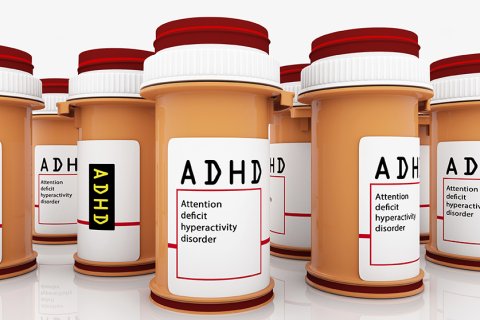Developmental labels: the good, the bad and the contested
How do diagnostic classifications affect children’s wellbeing?
Sometimes, children encounter difficulties in their development that require more guidance or help than is available at home or school. This often leads to children being given a ‘label’: a diagnostic classification such as ADHD, autism spectrum disorder or dyslexia. Overall, around 1 in 15 children in the Netherlands receives such a label during their childhood.
Not everything can be explained by biological research. The hub studies disorders from a broader perspective.
Such classifications are necessary to obtain appropriate care. On the other hand, there is social unrest about the increasing number of labels. Parents, schools and social workers increasingly question the effects of such a label. What happens to a child's self-image? And does a label influence the way his family, peers and others interact with the child?

Effect of labels on children and their environment
Furthermore, labels are not specific enough to help create an environment optimally adapted to an individual child’s needs. The question remains whether labels are necessary and desirable; and if not, what a better approach to charting individual problems and needs might be. Our starting point here is that more attention should be given to the possibilities and competences of the child, their family and the environment.
This project aims to bring together all of Utrecht's expertise in the field of child development and developmental disabilities. By integrating our knowledge, we can, together with social and campus partners, investigate the effect of diagnostic labels on children and their environment.
It's very important to realise that the nature, status and effect of a label can be harmful, especially to children.
With this knowledge, we hope to develop a comprehensive method that reflects diagnostic results in connection with the personal situation. This will make it possible to offer more child-centred treatment plans.
Current projects:
Interdisciplinary Bachelor’s course
In the spring of 2022, an interdisciplinary Bachelor’s course will be offered which will be open to both medical and non-medical students. This course will examine the discussion on diagnostic labels from various perspectives. Participants will analyse diagnostic labels through the lens of disciplines like neurobiology, linguistics, social sciences and ethics. They will conclude the course with a short work placement at one of the hub’s social partners.
Read more:
- Article in Scientific American about redefining the term ADHD. What if we just drop the word disorder altogether? No more ADHD, but ADH, without the D of disorder. The word disorder is misleading. The term suggests that we know that the cause lies within the individual. This is what researchers Sarah Durston, Branko van Hulst and Sander Werkhoven from Utrecht University and UMC Utrecht argue.
- Read the article about developments in the hub in the newsletter of Dynamics of Youth
Join us!
If you think you can contribute to our research, contact Myrte van Langen via M.J.M.vanLangen-8@umcutrecht.nl
We collaborate with the following partners (in Dutch):
Altrecht Kind & Jeugd, GGZ Drenthe, Balans, Nationale Jeugdraad, Samen Sterk zonder Stigma en Psymens, Nederlands Jeugdinstituut, Youké , Hersenstichting.


